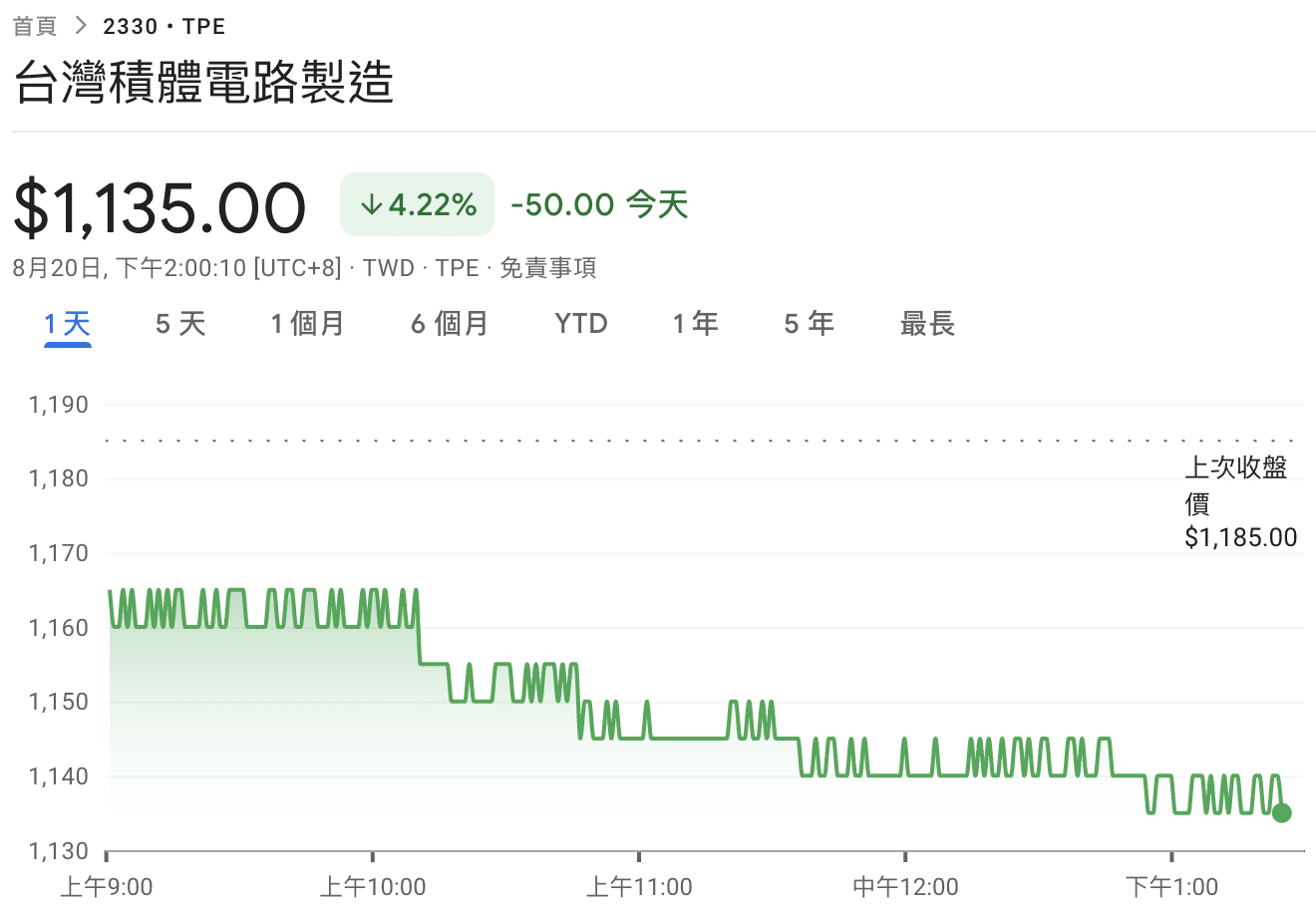The U.S. government is considering converting subsidies for the chip industry into actual equity investments. The White House today confirmed negotiations for a 10% stake in Intel, and Commerce Secretary Howard Lutnick further revealed intentions to expand this model to companies like TSMC and Samsung. However, this does not seem to be good news for TSMC.
The White House confirms: Washington is negotiating to acquire 10% stake in Intel.
White House spokesperson Karoline Leavitt confirmed today that the Trump administration is negotiating with chip giant Intel, potentially allowing the U.S. government to directly hold about 10% of the company's shares through the 'subsidy for equity' approach.
The president hopes to prioritize U.S. needs, whether from a national security or economic perspective.
Commerce Secretary Lutnick pointed out that the related plan will be based on the (CHIPS Act) to convert subsidies into equity to avoid the dilemma of past subsidies being purely expenditures.
Previous reports indicated that Intel, once a semiconductor giant but now somewhat lagging, is striving to catch up with Nvidia, Samsung, and TSMC in the AI chip market, and the U.S. government's investment will help it establish a flagship wafer manufacturing plant in Ohio.
On Monday, Japan's investment group SoftBank just announced it would acquire $2 billion in Intel shares, seen as a confidence indicator for the company's aggressive transformation.
Investment returns and political strategic significance: Avoid excessive reliance on foreign suppliers.
Lutnick previously stated on CNBC that the 'subsidy for equity' could solve the long-standing problem of the government investing large amounts of capital without returns; if converted into shares, U.S. taxpayer funds will achieve tangible benefits, and the government can also share in the fruits of corporate growth.
Vincent Fernando of investment consulting firm Zero One believes the policy also has strategic significance: 'Considering Intel's crucial role in U.S. semiconductor production, it is reasonable for the government to hold shares in Intel.'
The U.S. needs to focus on key industries such as chip manufacturing and national defense to avoid excessive reliance on foreign suppliers.
Policy expansion: TSMC, Samsung, and Micron are expected to be included.
The Intel case is not isolated; informed sources reveal that Lutnick has begun researching ways to promote the 'subsidy for equity' model to other companies receiving subsidies under the (CHIPS Act), including TSMC, Samsung, and Micron.
If implemented, this means the U.S. government will shift from being a subsidizer to a shareholder, possessing more direct influence over the global semiconductor supply chain.
It is reported that the subsidy amounts for Intel, TSMC, Samsung, and Micron are $7.9 billion, $6.6 billion, $4.75 billion, and $6.2 billion respectively. If subsidies are converted into equity, it means these companies must 'exchange shares for support', and U.S. influence will be deeper than ever.
Positive for Intel, negative for TSMC: How does the market interpret this?
This policy has produced significant differences among different companies. Intel, as a domestic U.S. enterprise, is seen as receiving official endorsement from the government, symbolizing full support from Washington, which can be considered a clear positive.
Conversely, the market interprets the impact of this news on TSMC as negative. Reasons include that the U.S. government's investment may reduce TSMC's autonomy, dilute existing shareholders' interests, and that the U.S. may continue to weaken its reliance on TSMC in the future.
Here, after the announcement, TSMC (2330) stock price fell over 4% in early trading, and the weighted index even plunged more than 700 points at one point, highlighting market concerns.
 Image source: Google Finance.
Image source: Google Finance.
Is political involvement in businesses an advantage or a disadvantage?
Although government investment can provide short-term funding and confidence, experts also warn of hidden risks. Dan Sheehan of Telos Wealth Advisors believes that subsidizing convertible bonds can enhance corporate flexibility but may also raise concerns about political interference.
When the government becomes a shareholder, corporate decision-making may be pulled between business discipline and political objectives, slowing efficiency or even interfering with corporate direction. Government investment in Intel may be good news, but it could be pressure for TSMC.
If the U.S. government's 'subsidy for equity' strategy is successfully promoted, it could become a new norm in U.S. technology industry policy, affecting the future semiconductor industry landscape, with global attention focused on this.
This article is published with permission from: (Chain News).
Original title: (White House Confirms Investment in Intel: Is the 'Subsidy for Equity' Next for TSMC?)
Original author: Crumax
'Is Trump stirring trouble again? The White House is negotiating a 10% stake in Intel; the subsidy-for-equity impacts TSMC's stock price.' This article was first published on 'Crypto City'.
